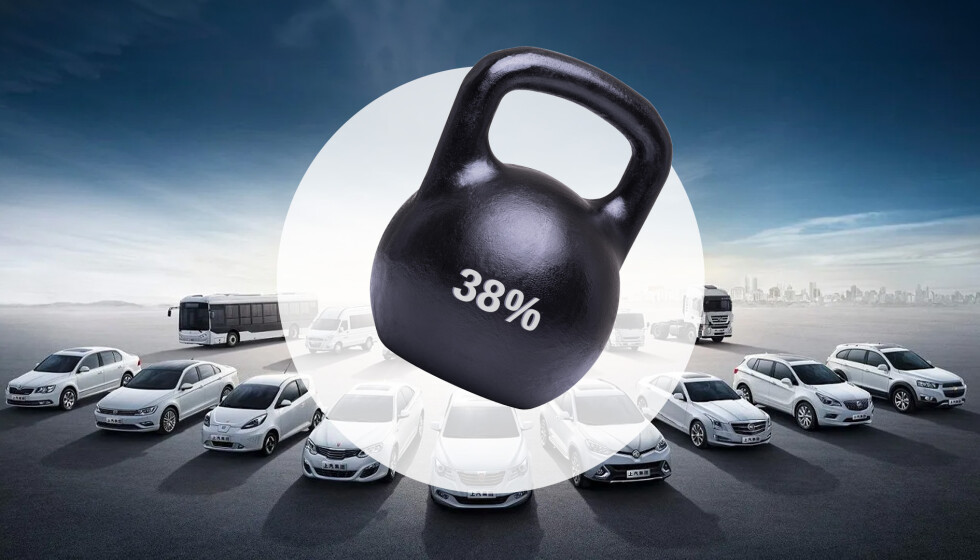
China, bye? The European Commission introduces a special duty on electric cars from China
Only 2 months have passed since a considerable article appeared on the website of the Institute of Car Market Research about the prospects of the European market and its possible transformations due to the influx of Chinese car manufacturers there. Moreover, not only in the role of importers — some of them plan (and some have already started) production of their products at their own or joint European enterprises.
It is clear that the costs of delivering finished products from China will be lower than the costs of paying European workers, since assembling a car, even with significant automation of processes, requires a considerable amount of manual labor. Therefore, the majority of Chinese car factories placed higher bets on imports.
But recently, new circumstances arose: during inspections, the European Commission discovered facts of state subsidization of the Chinese auto industry, Politico reports. Literally, as one EU official said, "Chinese electric cars are subsidized from mine to port in the EU, as Beijing invests in lithium mining, metal refining, steel production, batteries and the cars themselves, and delivering them to the ports of Rotterdam or Hamburg."
As a result of the study of the depth of subsidization, the producer BYD received a "plus" of 17.4%, Geely — 20%, and the maximum rate, which is 38.1%, was given to the products of the SAIC corporation. Other manufacturers not mentioned here will also have the highest additional tax burden on their EVs. At the same time, the duty rate for Chinese cars in the European Union is 15%, while for other foreign cars it is 10%.
Chinaʼs Chamber of Commerce and Industry did not leave such moves unanswered, expressing "shock, deep disappointment and dissatisfaction with this protectionist measure" and condemned the anti-subsidy investigation, calling it a "witch hunt."
These anti-dumping duties are currently being imposed on a temporary basis and will take effect on July 4. Although at the same time, a mechanism is provided that will allow special duty to be collected "retroactively" from cars imported into the EU since March of this year.
Chinaʼs reaction is obvious — any barriers such as special duties restrain the expansion of their products into new markets, and at the same time it should be understood that before the start of trade in Europe, Chinese car factories had to invest significant funds in certification, compliance with safety standards, adapting production and supply components to meet all local requirements, including product warranty support.
European car manufacturers also reacted, which mostly do not approve of the introduction of special duties, despite the fact that it should primarily protect them from unfair competition. "Fair and, above all, free global trade is very important, it stimulates innovation and growth. What we cannot use as an exporting country is an increase in trade barriers," said Mercedes-Benz CEO Ola Kellenius. "We must work on reducing trade barriers."
"The European automotive sector, in order to be globally competitive, first of all needs a solid industrial strategy for electromobility," said Sigrid de Vries, CEO of ACEA.
Therefore, the presence of European auto concernsʼ own businesses (or joint ventures) in China, as well as their dependence on the supply of certain components that are much cheaper to produce in China, led to the condemnation of the ECʼs decision on special tariffs, as there is a high probability of a symmetrical response from Beijing, which will certainly reflect it is also in the European automobile industry. As an example, we can mention the recent shortage of microcircuits.
Therefore, it is not excluded that in the near future the decision to introduce rather high special duties on Chinese electric vehicles may be revised.
How can this affect the Ukrainian car market?
First of all, we would like to remind you that the customs clearance of any passenger electric cars in Ukraine takes place on preferential terms, only with the payment of a small excise duty of 1 euro per 1 kWh of traction battery capacity. These norms will be in effect until January 1, 2026 — that is, another year and a half.
Ukraine does not have its own production of electric cars, and it is unlikely that at least one project will appear before the end of martial law and the stabilization of the economy as a whole. That is, there are no risks regarding the introduction of special duties in our country, as it happened in the EU.
What else is worth mentioning is something that is temporarily unavailable, but extremely necessary — seaports, which are currently operating in a limited mode and do not accept ships with goods, including cars The route through European ports is significantly more expensive, but not closed.
Taken together, all these circumstances can create the possibility of re-exporting "almost new" Chinese electric cars from Ukraine to the countries of the European Union, i.e. in the status of used, but with minimal mileage (or only the fact of having the first registration), i.e. actually new. Of course, any such supply channel can be blocked by some bureaucratic decision, but the listed internal circumstances plus the special duty in the EU create an interesting basis for Ukrainian car dealers, especially those who already have experience importing cars from China.
Subscribe to the Telegram channel of the Auto Market Research Institute to be the first to receive information without advertising or spam.


